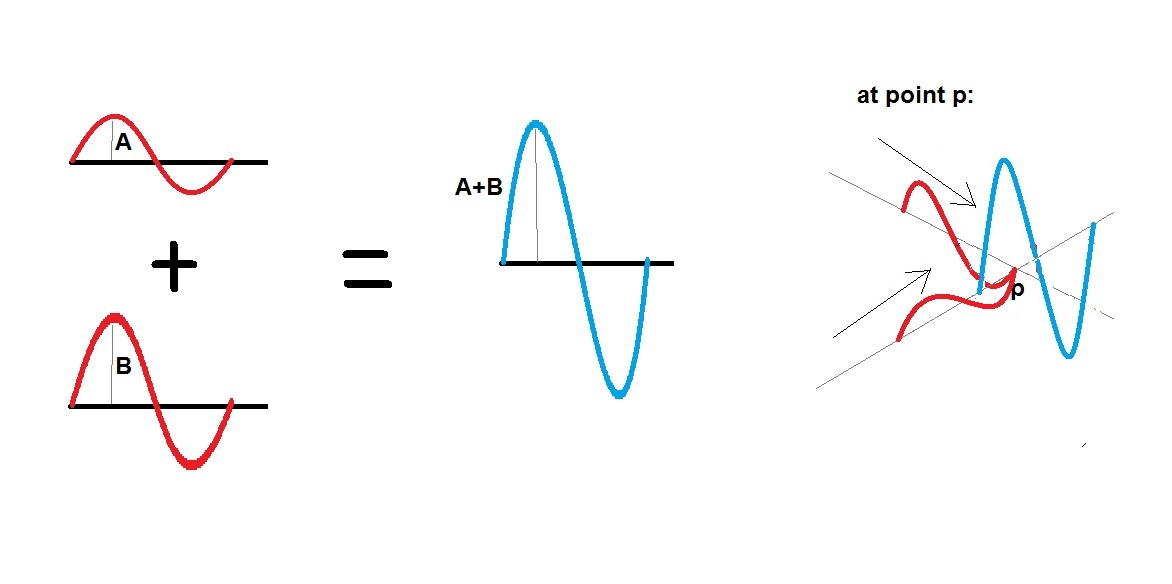When two waves interfere, can the resultant wave be larger than either of the two original waves? If so, under what conditions?
1 Answer
Jun 8, 2016
In case of constructive interference the amplitude of the resultant wave will be the (algebraic) sum of the intensity of the original ones:
Explanation:
The two waves must reach the point of superposition in phase; this means that they must oscillate in the same way (i.e., going up or down at the same time).
Visually you see this as:

As you can see at point p the two waves oscillate in phase adding, at this point, their amplitudes (blue). Passing point p they will be back to normal.

